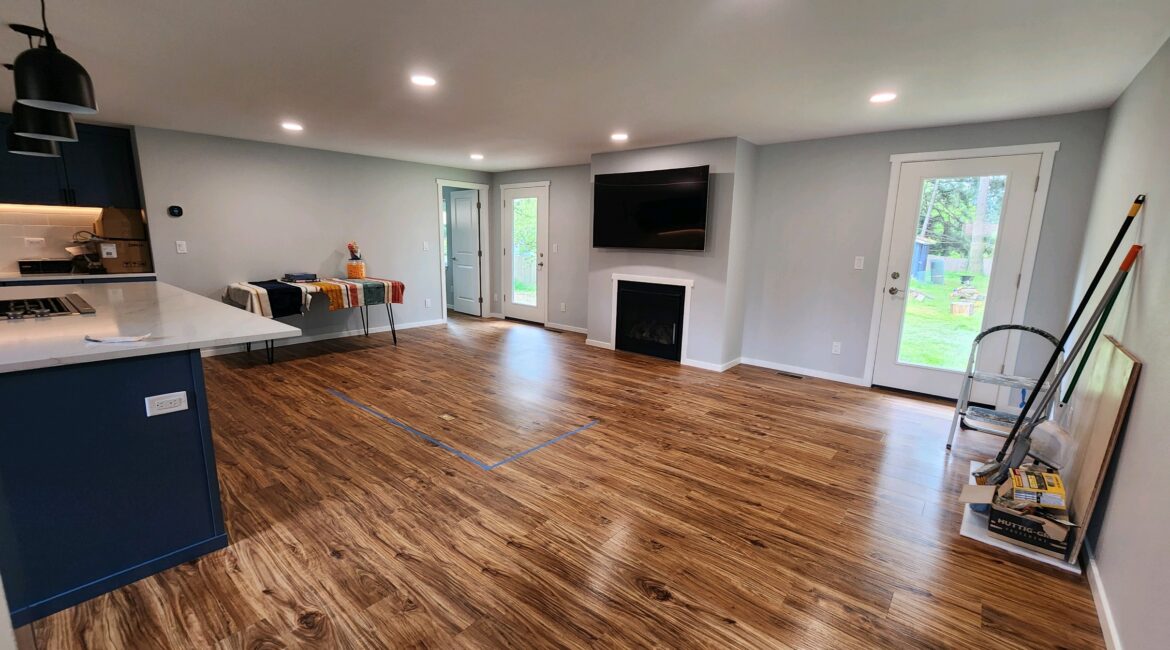**The Connection Between Clean Spaces and Mental Well-being**
A cluttered, messy space can often mirror the chaos in our minds, while a clean, organized environment can foster a sense of control, calm, and clarity. The idea that our external environment influences our mental state is not new. It has been explored in various research studies and backed by the experiences of countless individuals who notice an uplift in their mood when their surroundings are clean and organized. In this blog, we’ll dive into the psychological benefits of clean spaces, how clutter affects mental well-being, and the real-life examples that bring these points to life.
### The Psychology Behind Clean Spaces
From an evolutionary perspective, humans are wired to seek out order and structure. Our ancestors needed to organize their tools, shelters, and environments to survive efficiently. This ingrained need for order has remained with us. When we’re surrounded by chaos, it can trigger a feeling of being overwhelmed, which directly affects our ability to focus and manage stress.
A study published in the *Personality and Social Psychology Bulletin* found that individuals who described their homes as cluttered or full of unfinished projects were more likely to be fatigued, anxious, and stressed than those who described their living spaces as restorative and restful. The researchers attributed this to the fact that clutter bombards the mind with excessive stimuli, forcing it to work harder to process its surroundings.
In contrast, a clean space provides the brain with a calming visual cue. When we walk into an organized room, the clarity of the environment helps to reduce cognitive load. As a result, people experience feelings of relaxation and control. This sensation is closely linked to a reduction in stress and anxiety, as an orderly environment creates a sense of accomplishment and provides mental space for other productive activities.
### The Link Between Clutter and Stress
Clutter has been directly linked to stress and anxiety in numerous studies. In a 2010 study conducted by researchers at UCLA’s Center on Everyday Lives of Families (CELF), it was found that the amount of household objects directly correlates with levels of cortisol, the stress hormone. Women, in particular, were more likely to report elevated stress levels when they lived in cluttered homes, as they viewed the mess as a visual reminder of their unfinished tasks.
This makes sense when you think about how clutter forces the mind into a state of constant distraction. Even if you’re not consciously aware of it, the brain has to continually process the disorganization, leading to mental fatigue. It can prevent you from being able to focus on work, relax fully, or even sleep soundly. The “to-do” list never feels complete because clutter represents unfinished business. In turn, it can leave you feeling overwhelmed, anxious, and incapable of being productive.
### How a Clean Space Affects Focus and Productivity
A clean and organized environment significantly enhances focus and productivity. When working in a clutter-free space, your mind is free to concentrate on the task at hand. This is especially important in professional settings, where productivity is key.
Imagine trying to write a report or complete a project in an office piled high with paperwork, coffee cups, and miscellaneous items. It’s hard to stay on task when your mind is constantly diverted by the mess. In contrast, a clean, minimalistic workspace allows you to dive into deep work without unnecessary distractions.
Research supports this. A 2011 study by Princeton University Neuroscience Institute found that clutter reduces productivity by overwhelming the brain with excess stimuli. The more clutter there is in a workspace, the harder it is for individuals to focus, as they are constantly being pulled away from their primary task. In a clean environment, however, the brain is able to process information more effectively, leading to increased productivity and enhanced focus.
### Clean Spaces and Emotional Well-being
Beyond productivity and focus, a clean environment can also improve overall emotional well-being. There is a strong link between clean spaces and feelings of calm, happiness, and general contentment.
The process of cleaning itself can be a therapeutic activity. In fact, many people find that organizing or cleaning their living space gives them a sense of accomplishment. When you clean or declutter, you actively engage in an activity that is within your control. This can be particularly powerful for individuals who may feel overwhelmed in other areas of their life. The ability to control your environment leads to a sense of empowerment and satisfaction.
A 2016 study published in the journal *Mindfulness* found that participants who engaged in mindful dishwashing — focusing on the sensations and textures involved in the task — reported a 27% reduction in nervousness and a 25% increase in mental inspiration. This suggests that even simple cleaning activities, when done with mindfulness, can significantly improve mental clarity and emotional well-being.
### Real-life Examples: How Clean Spaces Transform Lives
Consider Marie Kondo’s widely popular “KonMari” method, which advocates for decluttering by keeping only items that “spark joy.” Countless individuals have shared their transformational experiences with this method, emphasizing how their mental and emotional states improved after decluttering their homes. These transformations often go beyond the physical space and manifest in improved relationships, reduced stress, and a renewed sense of purpose.
One compelling story comes from a woman named Jenna, a young professional who found herself overwhelmed by the demands of her career and the constant clutter in her apartment. She was perpetually stressed, fatigued, and struggled to concentrate at work. After adopting a daily cleaning routine and decluttering her apartment, Jenna reported not only a sense of relief but also an increase in her overall happiness. She felt more in control of her life and noticed that her anxiety decreased significantly as her home became more organized.
The connection between a tidy environment and mental clarity can also be seen in corporate settings. Many companies have started prioritizing clean, organized workspaces, incorporating minimalistic designs into their office layouts. By doing so, they aim to create environments that promote creativity, reduce stress, and enhance employee productivity. Google, for example, is known for its clean, open spaces that encourage focus and well-being among employees.
### Simple Tips to Create a Clean Space for Mental Wellness
1. **Start Small**: Don’t feel overwhelmed by the idea of decluttering your entire home or workspace at once. Begin with one area — perhaps a single drawer or closet — and work your way up.
2. **Develop a Routine**: Create daily cleaning habits, such as making your bed every morning or clearing your desk at the end of the day. These small actions can have a huge impact on your mental state.
3. **Be Mindful**: When cleaning, focus on the task at hand. Pay attention to the sensory details — the feel of wiping a surface or the sound of objects being organized. This can help you relax and clear your mind.
4. **Let Go of Unnecessary Items**: Donate or discard items that no longer serve you. Holding onto excess things can clutter not only your space but also your mind.
### Conclusion
A clean, organized space isn’t just aesthetically pleasing; it’s essential for mental well-being. The relationship between our environment and our state of mind is undeniable. Clean spaces promote calm, reduce stress, and increase productivity, creating an atmosphere where we can thrive mentally, emotionally, and even physically. Whether you’re tackling a messy home, workspace, or mind, starting with a clean slate can unlock numerous psychological benefits, allowing you to live a more happy life!





